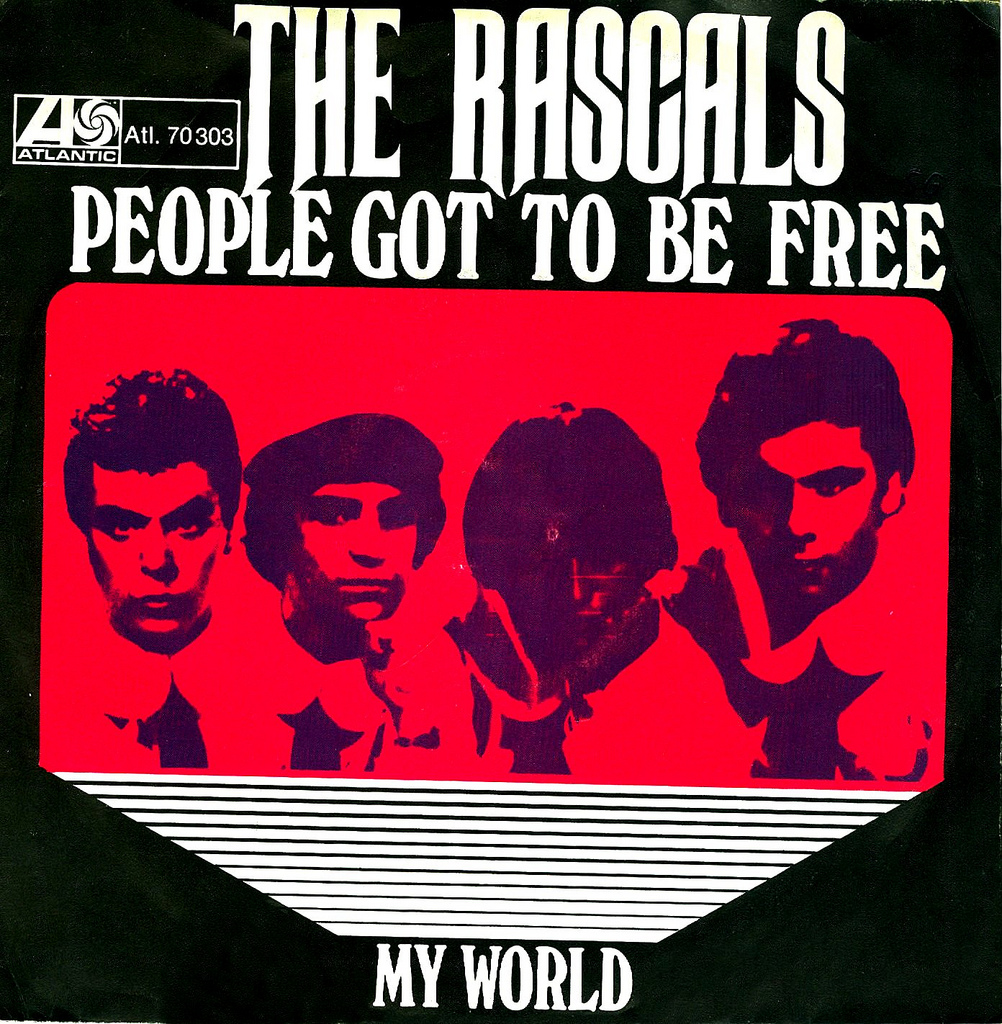August 17, 1968
- STAYED AT #1:5 Weeks
In The Number Ones, I'm reviewing every single #1 single in the history of the Billboard Hot 100, starting with the chart's beginning, in 1958, and working my way up into the present.
If you try to look at the pop charts as any kind of barometer for the national climate, you will drive yourself insane. Consider this: The week after Martin Luther King, Jr. was assassinated, Bobby Goldsboro's "Honey" shot to #1. Now: Were people attempting to mourn King by listening to to this guy's drippy, maudlin, pervadingly assholish song about a dead woman? During hectic times, were people trying to soothe themselves with a sentimental ballad? Or were people simply not thinking about what was happening in the world when they were making their pop-music-related decisions? Who can know?
Every so often, though, we can hear larger forces at work within the songs at #1. That's obvious enough when a more-or-less straight-up protest song like Barry McGuire's "Eve Of Destruction" hits #1. Sometimes, those events come through in more subtle ways, as when Archie Bell wrote "Tighten Up" largely to cheer himself up as he was getting ready to be drafted. And it also happens when world events inspire musicians to address that world however they can. "People Got To Be Free," the big 1968 hit from the formerly-young Rascals, is one of those moments.
https://youtube.com/watch?v=xYYQx9K6Cb0
The Rascals were, of course, a white rock band. But they were rooted in R&B, they recorded for what was mostly a soul label, and they refused to play on all-white bills. King's assassination had to hit them hard. "People Got To Be Free" is their response. It's not a response to Robert F. Kennedy's assassination, since the band recorded the song before that happened, but people hearing the record probably read that into it, too.
But "People Got To Be Free" isn't a protest song. Instead, it's an upbeat white-soul stomper, full of horn-stabs and fired-up harmonies. Rascals co-leaders Felix Cavaliere and Eddie Brigati wrote the song together, and they kept the message as vague and upbeat as they could: "All the world over, so easy to see / People everywhere just wanna be free." ("Free" is one of those words that can mean whatever the speaker wants; just ask the Freedom Caucus.)
You'd think that 1968, a time of fear and anger and uncertainty, would call for songs of fear and anger and uncertainty, and god knows there were plenty. But "People Got To Be Free" isn't one of them. (Really, almost none of the songs that hit #1 in 1968 were.) Instead, "People Got To Be Free" is a song of encouragement. In the face of all we're seeing, the Rascals are saying, things are getting better. That's the case they make on the outro: "See that train over there? That's the train of freedom! It's about to arrive any minute now!" That optimism is simplistic and fuzzy-headed, but it's remarkable that anyone felt it at all.
Divorced from its context and heard simply as a song, "People Got To Be Free" is just OK. It's lean and sprightly, and its bouncy horns and bluesy guitar flourishes have that great warm, lived-in Atlantic sound. But it's also a bit stiff and repetitive, and Cavaliere, who sang the song, just couldn't hang with the straight-up soul singers of the era.
Still, "People Got To Be Free" marks the end of a pretty amazing run of #1s. The Rascals, Young or otherwise, hit #1 three times in the '60s. (If you count the one #1 from Joey Dee And The Starliters, the band that featured three of the four former Rascals, they got there four times.) And all of those songs are radically different from one another, to the point where it's almost hard to believe that we're hearing the same four people. I only really love one of those songs, the R&B/garage-rock hybrid "Good Lovin'," but that run, seen as a single body of work, is a hell of an achievement.
After "People Got To Be Free," the Rascals stuck around another four years, continuously cranking out more music but scoring no more major hits. They broke up in 1972 and, naturally, reunited a bunch of times over the years. These days, nobody thinks of the Rascals as belonging to the highest echelon of '60s bands. But for a few years there, they were evolving along with everyone else and scoring bigger hits than most. During a period as creative and competitive as the late '60s, that's no easy feat.
GRADE: 5/10
BONUS BEATS: Here's the cast of Xena: Warrior Princess performing a vaguely Latin Broadway-funk version of "People Got To Be Free" during what must've been a very strange episode:
THE NUMBER TWOS: Steppenwolf's eternally badass hard rocker "Born To Be Wild" peaked at #2 behind "People Got To Be Free." It would've been a 9. Here it is:






